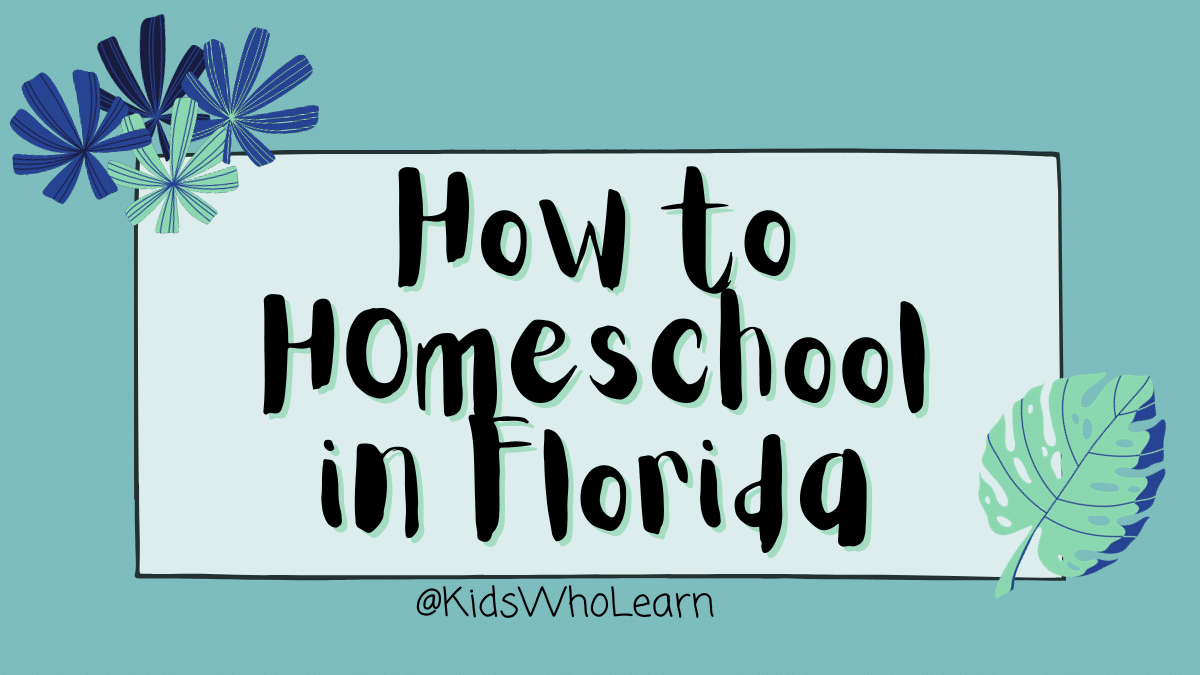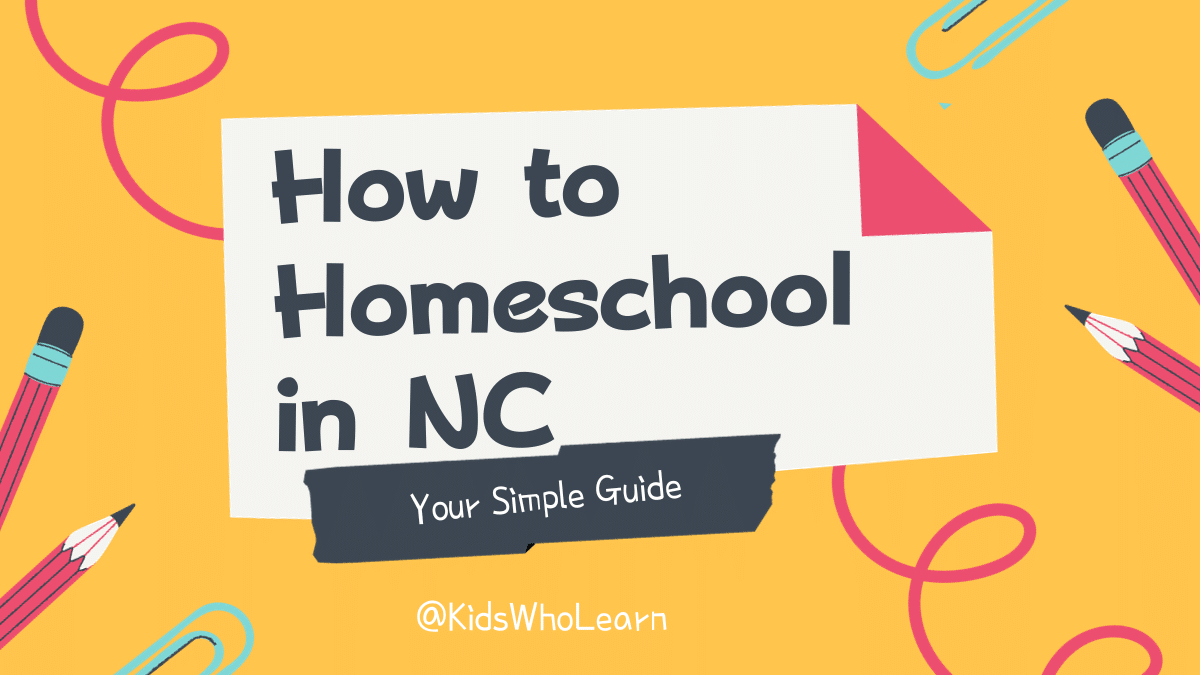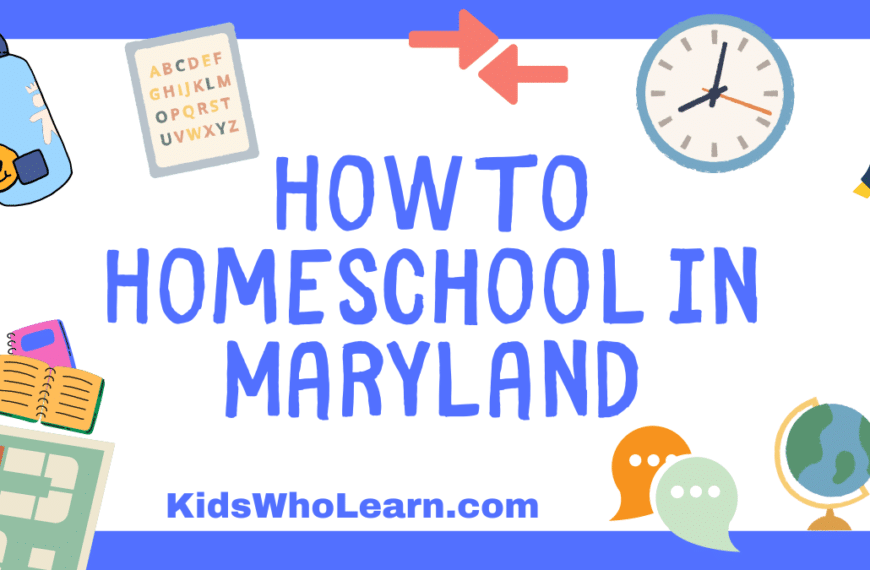Homeschooling has become a popular option for families looking to provide a personalized education for their children. In Florida, homeschooling allows families to have more control over their child’s learning experience, ensuring they receive the kind of education they believe is best for their child. As a parent, you may be considering this option for your family, but may not know where to begin or what the process entails.
In the sunny state of Florida, homeschooling is an exciting endeavor with numerous resources and opportunities available to parents and children alike. This article will help guide you through the necessary steps, starting from understanding the Florida homeschooling laws, to choosing a curriculum, and creating a conducive learning environment, all the while staying connected with the homeschooling community. We also cover important aspects such as financial considerations and graduation requirements.
Key Takeaways
- Florida’s homeschooling laws provide flexibility and resources for families
- A well-rounded curriculum and a conducive learning environment are essential components of homeschooling
- Staying connected to the homeschool community and understanding financial considerations can lead to a successful homeschooling experience
Understanding Homeschooling
Homeschooling in Florida can be a great educational choice for your family. It allows you to enjoy flexibility, personalize your child’s education, and spend quality time together. If you’re considering homeschooling, it’s important to understand the process and requirements.
First, familiarize yourself with the Florida homeschooling law. The law outlines three options for homeschooling: establishing a home education program, enrolling in a private school with a homeschooling option, or participating in an umbrella school program. Each option has specific requirements and guidelines, so be sure to research which one best suits your family’s needs.
Next, consider your child’s needs and learning styles. Homeschooling offers the opportunity to tailor your child’s education, so think about their interests, strengths, and weaknesses. Evaluate various curriculum options and teaching methods, and choose what works best for both you and your child.
In Florida, you need to register your homeschool with the local school district. To do this, submit a written notice of intent to homeschool, including your child’s name, date of birth, and address. You’ll also need to keep records of your educational activities and complete an annual evaluation for each student.
Connect with other homeschooling families in your area or online. They can offer valuable support, advice, and resources. Participating in local homeschool groups or co-ops can provide your child with socialization, group learning experiences, and extracurricular activities.
Remember, the key to successful homeschooling is flexibility and adaptability. It’s a journey that will have its challenges and rewards, but with proper planning, dedication, and a friendly attitude, you can provide your child with a fulfilling educational experience.
Florida Homeschooling Laws
Notification Requirements
In Florida, to begin homeschooling, you should submit a Notice of Intent to your local school district within 30 days of starting your homeschool program. The notice should include your child’s information, such as their name, birthdate, and address. Don’t forget to keep a copy for your records as well. After submitting the notice, your local school district should provide you with homeschooling guidelines and assistance.
Record Keeping
Proper record keeping is crucial when homeschooling in Florida. You are required to maintain the following records:
- A portfolio of your child’s work, including daily lesson plans, written work, and any other materials that show progress and participation in the homeschool program.
- A logbook showing educational activities and subjects covered, with a date for each entry.
Keep these records on file for two years after the completion of each school year. The school district can request to review your child’s portfolio with 15 days of written notice, but don’t worry, they won’t evaluate individual assignments or judge your teaching style.
Assessment Requirements
Florida law requires an annual educational evaluation to assess your child’s progress while homeschooling. You have several options to choose from for this evaluation:
- A Florida state-certified teacher can evaluate your child and their portfolio.
- Your child can take a standardized test administered by a Florida state-certified teacher.
- You can use a non-public school standardized test.
- A psychological evaluation conducted by a licensed psychologist can prove your child’s progress.
After completing the assessment, submit the results to your local school district within one year of the evaluation. As long as your child shows progress according to their age and ability, they can continue with their homeschool program. Keep in mind that you have 30 days to submit a remedial plan if the school district determines that your child isn’t making the necessary progress.
Homeschooling in Florida provides you considerable flexibility, as long as you follow the laws and guidelines set forth by the state. Stay organized, keep records, and ensure your child’s progress is assessed annually. Good luck!
Choosing a Curriculum
When it’s time to choose a curriculum for homeschooling in Florida, it can feel overwhelming. But don’t worry, we’re here to help! Let’s take a look at some factors to consider when selecting the right curriculum for your child.
Consider Your Child’s Learning Style: Think about how your child learns best. Are they visual learners, auditory learners, or kinesthetic learners? Knowing their preferred learning style can guide you in choosing a curriculum that incorporates teaching methods tailored to their needs.
Align with Florida State Standards: Although Florida homeschoolers are not required to follow the state’s public school curriculum, it’s a good idea to ensure your chosen curriculum aligns with Florida state standards. This will help prepare your child for any standardized tests and future educational opportunities.
Choose Subject Areas: Decide which subject areas you want to focus on for your child’s education. Core subjects include language arts, mathematics, science, and social studies. You can also incorporate elective subjects such as art, music, or physical education.
Explore Different Types of Curriculums: There are various curriculum types available for homeschooling, including:
- Traditional/Textbook-based
- Unit studies
- Online/digital
- Montessori
- Waldorf
- Classical
- Eclectic
Take the time to research and determine which style best fits your child’s needs and your teaching style.
Evaluate the Costs: Homeschooling curriculums can vary in cost. Consider your budget and the financial implications of each option. Also, look for free resources, such as online learning platforms and local homeschooling groups.
Review and Select Materials: Once you’ve decided on a curriculum type, review the materials to make sure they’re engaging and age-appropriate. Test out samples or read reviews from other homeschooling families.
Remember, it’s okay to adjust and make changes if something isn’t working for your child or family. With patience and research, you can find the perfect curriculum to foster a successful homeschooling experience in Florida.
Creating a Learning Environment
Physical Space
Creating a comfortable and inviting physical space for homeschooling is important for your child’s learning experience. Make sure to designate a specific area in your home for learning activities. Here are some tips to keep in mind:
- Choose a quiet space with minimal distractions
- Ensure ample natural or artificial lighting
- Provide a comfortable chair and desk
- Organize materials and supplies neatly
Remember, the space should be flexible enough to accommodate different learning styles and activities, like group discussions, individual reading, and hands-on projects.
Educational Resources
To effectively homeschool in Florida, you’ll need to gather a variety of educational resources tailored to your child’s needs and interests. Here are some ideas:
- Curriculum materials: Research and choose a suitable curriculum that meets the Florida homeschooling requirements.
- Books: Build a home library with age-appropriate fiction and non-fiction books for your child.
- Online resources: Access online educational platforms, learning apps, and video resources to supplement traditional learning materials.
- Community resources: Use local libraries, museums, and nature centers to foster experiential learning.
Creating a well-rounded learning environment takes time, but with careful planning and a friendly attitude, you can develop an ideal space for your child’s homeschooling journey in Florida.
Stay Connected
Homeschool Support Groups
Joining a homeschool support group in Florida can greatly benefit your homeschooling journey. Not only will you be able to share resources and get advice, but you’ll also have an opportunity to connect with other homeschooling families. You’ll find local support groups through the Florida Parent Educators Association (FPEA) or by checking Facebook groups and community organization websites. Here are a few ways support groups can help you:
- They offer socialization options for your child.
- They provide educational resources and curriculum recommendations.
- Some offer field trips, co-op classes or group activities.
Make sure to find a group that aligns with your family’s values and educational goals.
Online Community
In addition to in-person support groups, you can benefit from joining online communities made up of homeschooling families in Florida. These platforms give you access to a wealth of information and resources, like:
- Online forums and Facebook groups where you can ask questions and get answers from experienced homeschoolers
- Blogs and websites featuring reviews and recommendations of curriculum, teaching materials, and methods
| Popular Online Communities | Links |
|---|---|
| A2Z Homeschooling | Visit Site |
| Time4Learning | Visit Site |
| The Homeschool Mom | Visit Site |
By staying connected with support groups and online communities, it will be easier to navigate your homeschooling journey in Florida.
Financial Considerations
When planning to homeschool in Florida, it’s important to consider the financial aspects. Creating a budget can help you manage your expenses effectively. Take into account the cost of curriculum materials, educational tools, extracurricular activities, and field trips. Keep in mind that as a homeschooling parent, you might need to sacrifice work hours, resulting in reduced income.
Curriculum materials can range from free online resources to expensive all-inclusive packages. It’s possible to find suitable materials at low costs or even for free, but make sure they meet Florida’s educational requirements. Libraries can be a great source of free educational materials as well.
When it comes to educational tools, consider one-time purchases like computers and tablets, as well as recurring expenses like internet access and software subscriptions. Look for discounts, special offers, and free resources that are often available for homeschooling families.
Extracurricular activities are essential for a well-rounded education. This includes music lessons, sports, clubs, and community service opportunities. Some of these activities might be low-cost or free, while others can have fees or membership charges. Research your options and choose wisely to balance expenses against the overall experience.
Don’t forget the costs associated with field trips and travel. Homeschool groups often arrange group trips to places like museums, historical sites, and parks. While some attractions offer discounted rates for homeschoolers, travel expenses and entry fees can still add up. Plan and budget for these activities carefully.
Keep in mind that Florida doesn’t offer direct financial support to homeschooling families. However, there are some tax credits and deductions that you might qualify for depending on your situation. Research what’s available to you and seek the help of a tax professional if necessary.
By considering all these financial aspects and planning accordingly, you can create a successful and enjoyable homeschooling experience for your family in Florida.
Graduation Requirements in Florida
As you plan to homeschool in Florida, it’s essential to understand the graduation requirements for your student. In this friendly guide, we will walk you through the necessary components and credits for high school graduation in Florida.
Course Credits: Your student will need to earn a total of 24 credits, distributed across various subject areas, to graduate from high school in Florida. The required credits include:
- 4 credits in English Language Arts
- 4 credits in Mathematics (Algebra 1 and Geometry are mandatory)
- 3 credits in Science (including Biology and two lab-based courses)
- 3 credits in Social Studies (including World History, US History, US Government, and Economics)
- 1 credit in Fine or Performing Arts, Speech, or Debate
- 1 credit in Physical Education (including Personal Fitness)
- 8 credits in Elective courses
Grade Point Average (GPA): To graduate, your student must maintain a minimum cumulative GPA of 2.0 on a 4.0 scale. Monitoring your student’s progress and offering support when necessary can help them reach and maintain this standard.
State Assessments: Florida requires students to pass specific assessments to graduate. Homeschooled students must pass the Grade 10 Florida Standards Assessment (FSA) in English Language Arts and achieve a passing score on the Algebra 1 End-of-Course (EOC) assessment. If your student doesn’t pass these exams, they may have the option to use their SAT or ACT scores to meet this requirement.
- Grade 10 FSA in English Language Arts or a concordant score on the SAT or ACT
- Algebra 1 EOC or a comparative score on the PERT, SAT, or ACT
Remember, as a homeschooling family in Florida, you should regularly communicate with your district’s homeschool evaluator and keep track of all relevant documents and records. This way, you can ensure that your student is seamlessly progressing toward meeting graduation requirements and earning their high school diploma.
Frequently Asked Questions
What are the steps to start homeschooling in Florida?
To start homeschooling in Florida, follow these steps:
- Submit a written notice of intent to homeschool to your local school district superintendent within 30 days of beginning your homeschool program.
- Keep a portfolio of your child’s educational records, including a daily log of activities and samples of their work.
- Provide an annual educational evaluation to maintain homeschool eligibility.
- Notify the local school district when terminating your homeschool program.
What are the portfolio requirements for Florida homeschoolers?
A homeschool portfolio in Florida should include:
- A daily log of educational activities, including subjects covered and resources used
- Samples of your child’s work, such as assignments, tests, or projects
- A record of books, materials, and other resources used in your homeschool program
- Any other documentation of your child’s progress, such as report cards or standardized test results
How do I find accredited homeschool programs in Florida?
To find an accredited homeschool program in Florida, research and consider the following options:
- Florida Parent-Educators Association (FPEA) provides resources and support for homeschool families.
- Online homeschool directories can help you find accredited programs in your area.
- Join local homeschool support groups or online forums, as fellow homeschoolers can offer recommendations and experiences with accredited programs.
What are the graduation requirements for Florida homeschool students?
In Florida, graduation requirements for homeschool students include:
- Completing 24 credit hours in specific subjects, such as English, math, science, history, and electives
- Meeting certain standardized test thresholds, such as passing the Florida State Assessment (FSA) or obtaining a minimum score on a college entrance exam like the SAT or ACT
Keep in mind that specific requirements may vary depending on the chosen curriculum or program.
Are there any homeschool grants available in Florida?
While there aren’t specific homeschool grants in Florida, other financial assistance options may include:
- Alternative scholarships for homeschoolers, including merit-based, need-based, or talent-based programs
- Exploring tax credits and deductions for educational expenses
- Utilizing free or low-cost educational materials, resources, or curriculum options
How is the homeschool evaluation process conducted in Florida?
The homeschool evaluation process in Florida can be conducted through one of the following methods:
- An evaluation by a Florida-certified teacher who reviews the portfolio and discusses the student’s progress with the parent
- An evaluation using standardized tests, such as the FSA or a nationally recognized test (i.e., SAT, ACT)
- A review by a licensed psychologist or school psychologist
- A mutually agreed-upon method between the parent and local school superintendent
An evaluation confirmation must be submitted annually to the local school district.







